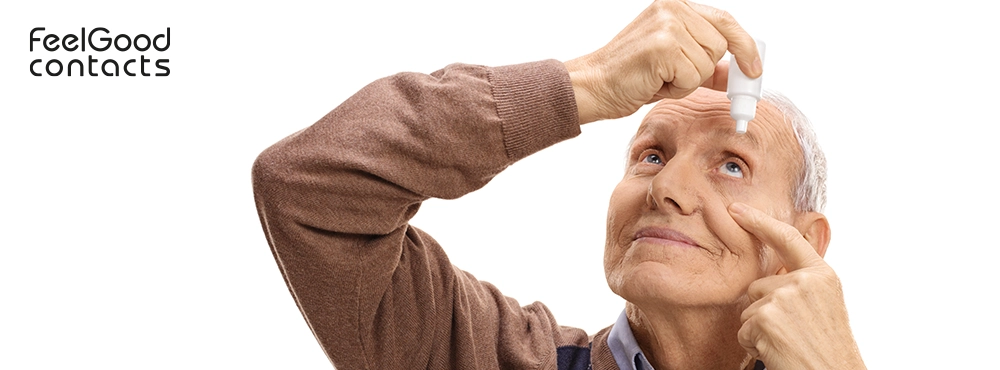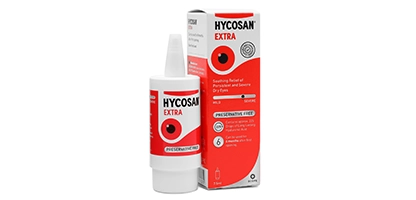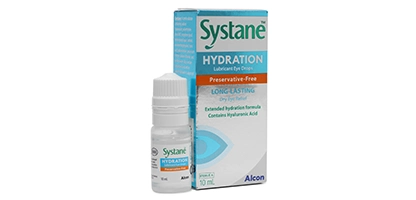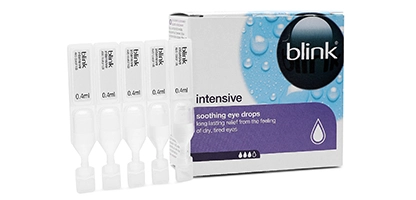Dry eyes aren’t just uncomfortable, they can also cause blurry vision, making your eyes feel tired and also affecting the quality of life. One of the reasons can be age-related dry eyes. As we get older, the likelihood of experiencing dry eyes increases due to a natural decline in tear production.
Learn in this detailed guide the causes of dry eyes, its symptoms and the expert-recommended eye drops.
What are dry eyes?
Dry eyes syndrome is a common eye disorder when your eyes don’t make enough tears or the tears evaporate too quickly. It can make your eyes feel dry, scratchy and irritated.
According to Glaucoma UK, age-related dry eyes affect nearly 1 in 3 adults over 65 in the UK.
Does age increase the risk of dry eyes?
Although dry eyes can affect anyone, the risk increases as we age. The tear production in our eyes tends to decrease after the age of 50. Hormonal changes, certain medications and health conditions like arthritis or diabetes can also worsen the issue.
Are dry eyes a serious problem?
Dry eyes are generally not a serious condition in most cases, but they can be a source of discomfort and annoyance. While they usually do not lead to life-threatening issues, severe cases may lead to complications such as:
- Conjunctivitis - Eye dryness weakens the natural protective barrier, allowing bacteria, allergens or irritants to cause inflammation, leading to conjunctivitis.
- Corneal damage - Chronic dryness can harm the cornea, the clear front surface of the eye. With scarring, it may affect your vision over time.
If you experience ongoing irritation, blurred vision or eye pain, consult an eye care professional. Most dry eye issues can be effectively managed with proper treatment and care.
Symptoms of dry eyes due to ageing
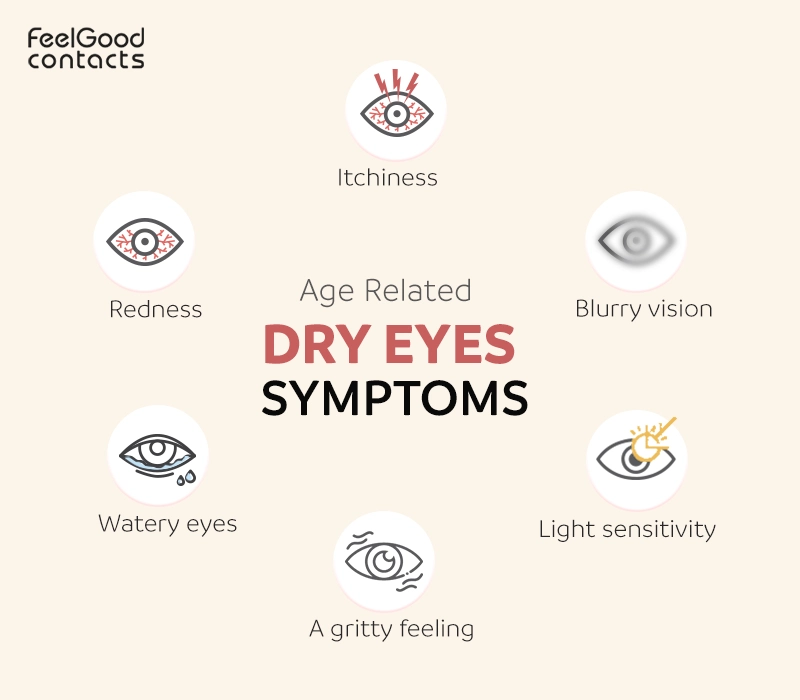
Do you often feel your eyes are dry or irritated? Here are common signs to look for:
If you’re experiencing any of the symptoms mentioned above, eye drops can help.
How eye drops can help
Eye drops provide lubrication for your eyes, relieving dryness and discomfort. Lubricating eye drops (also called artificial tears) moisturise and soothe the eyes by imitating the natural tear film.
These drops also help in:
- Rehydrating the eye surface
- Reducing redness and irritation
- Improving comfort during long screen sessions
- Supporting better focus by reducing dryness-related blurring
Expert-approved eye drops for age-related dry eyes
If you’re wondering what eye drops are good for ageing eyes, then this list is for you. The list below is compiled by our in-house contact lens optician. Alastair Lockwood. He explains, “Choosing the right product depending on the severity and frequency of your symptoms is very important.”

 Offers
Offers Account
Account
 Favorite
Favorite
 Basket
Basket

 OFFERS
OFFERS











